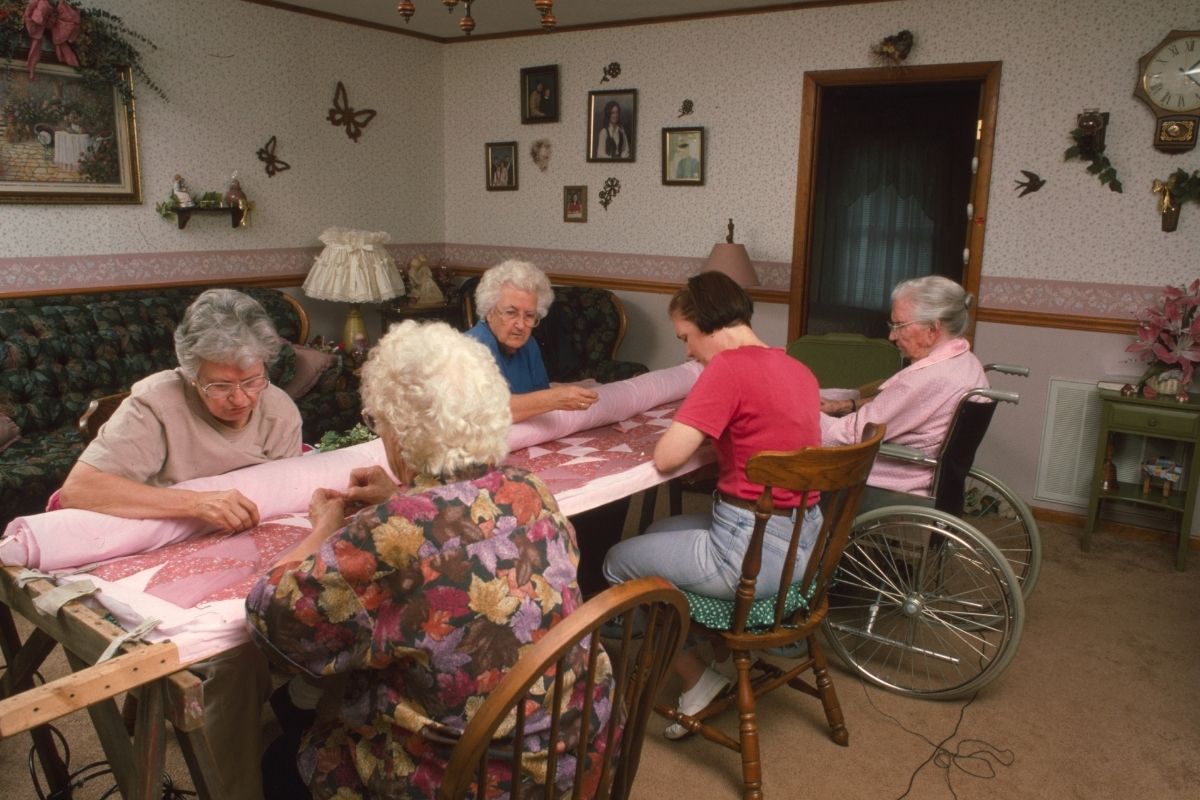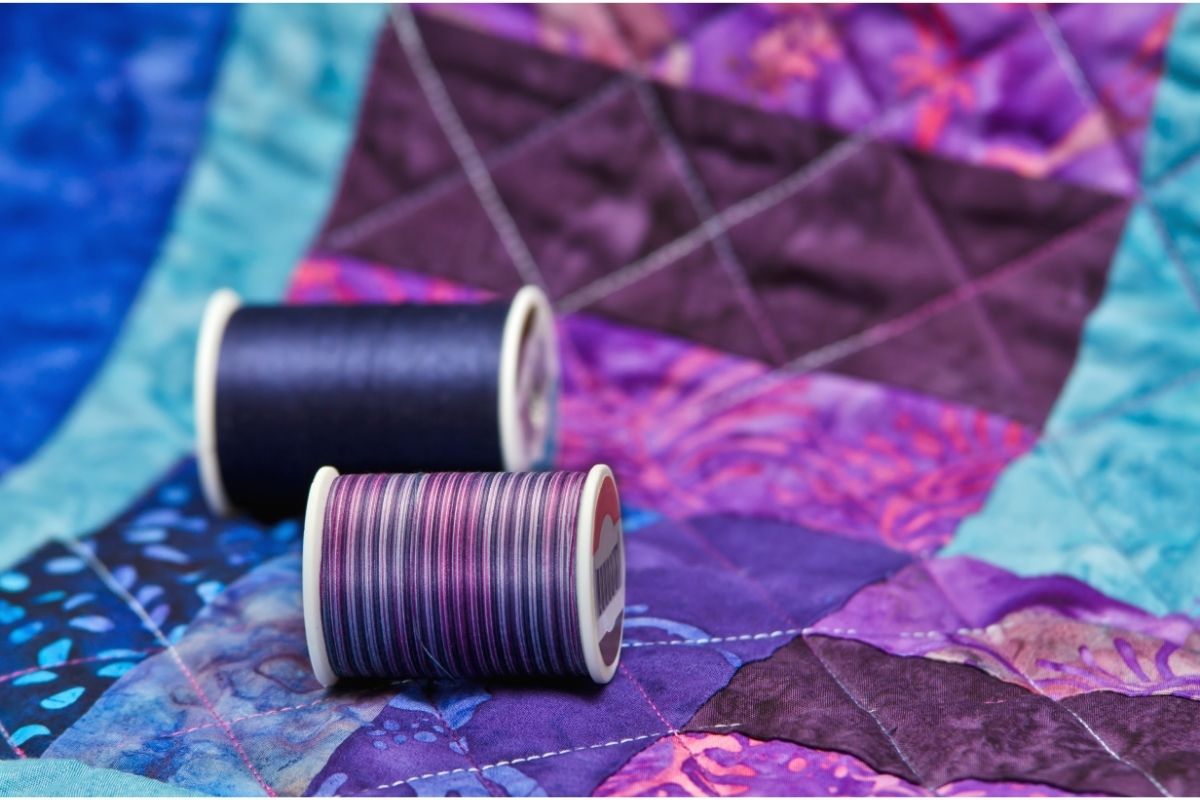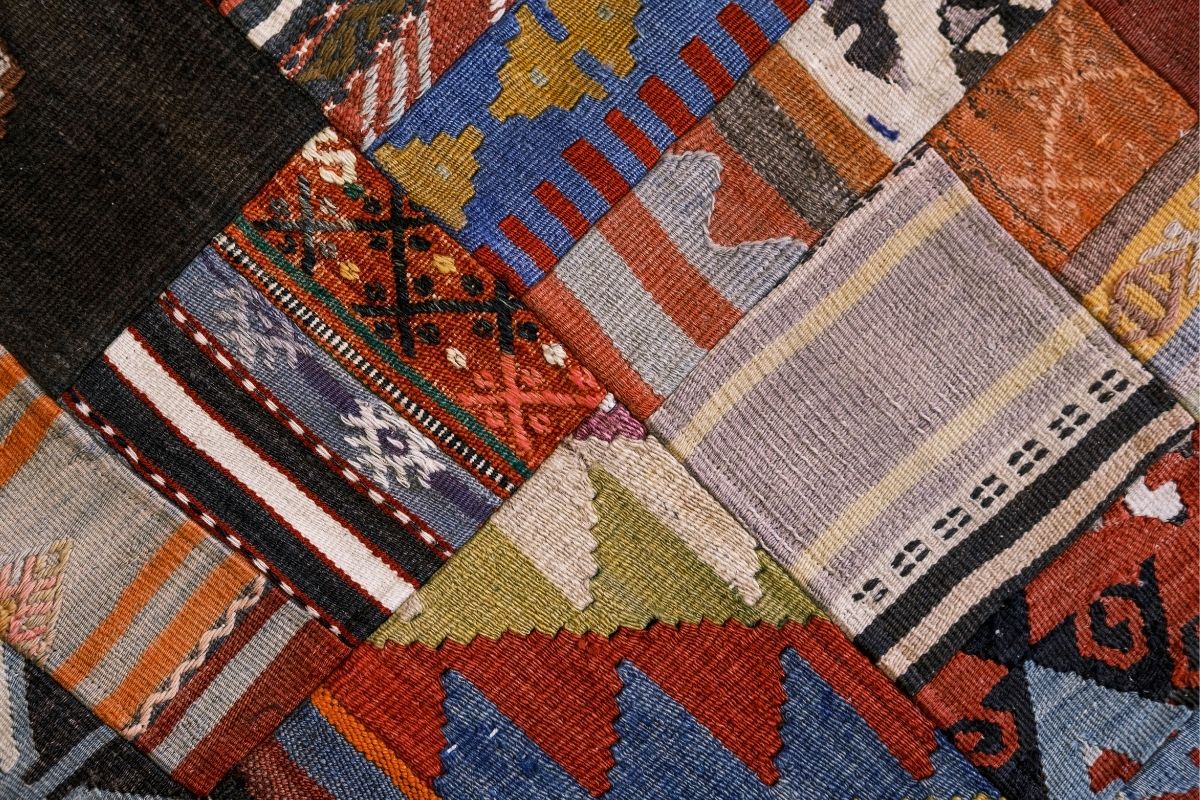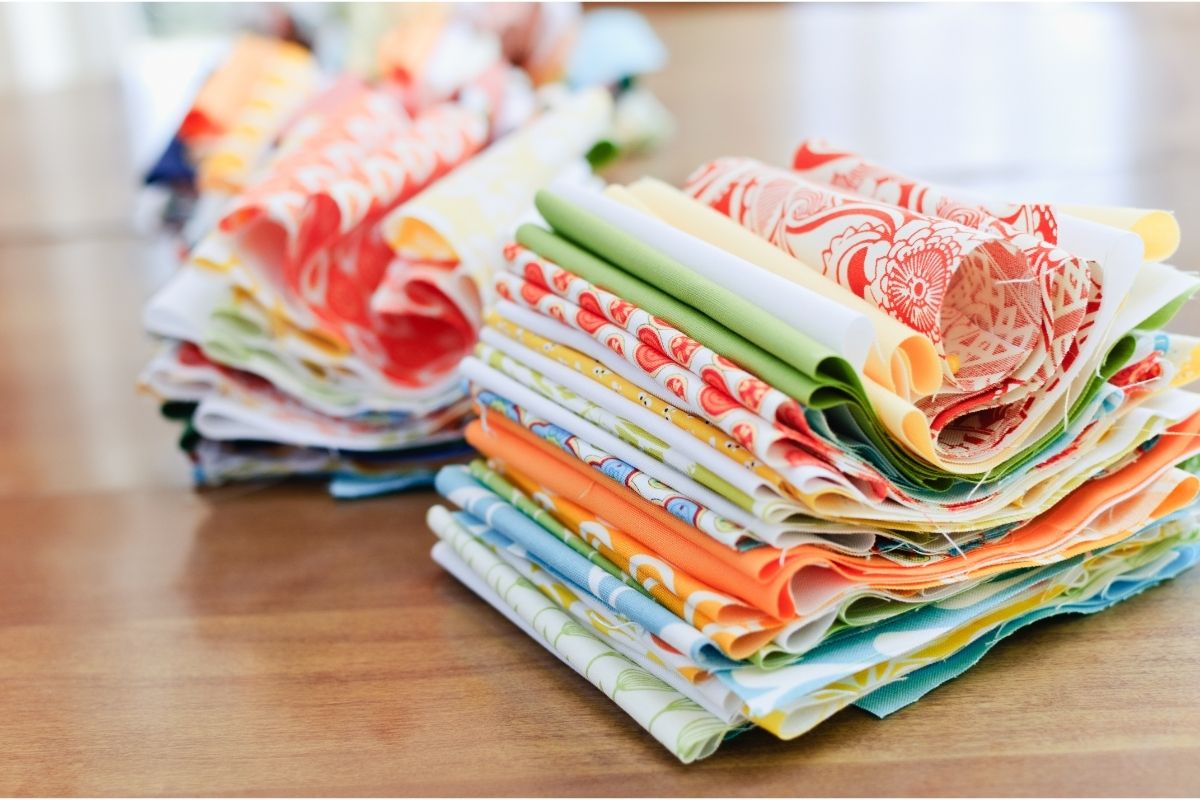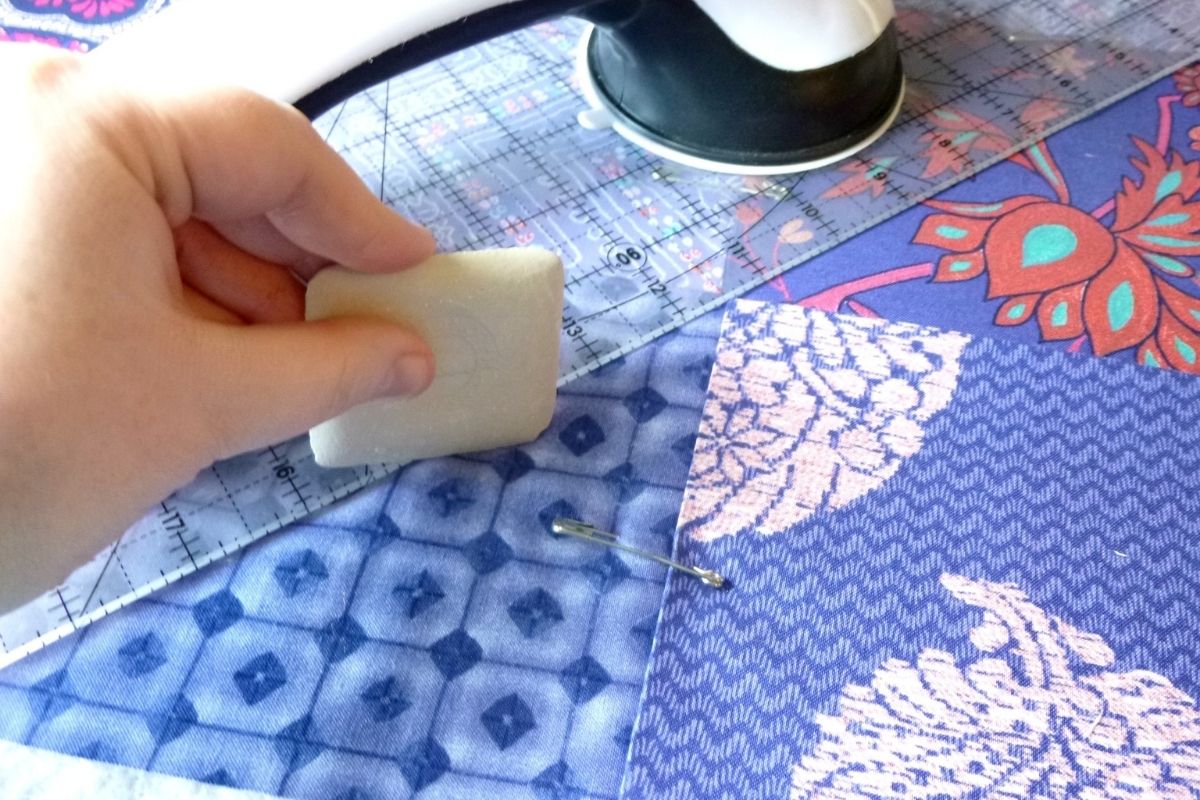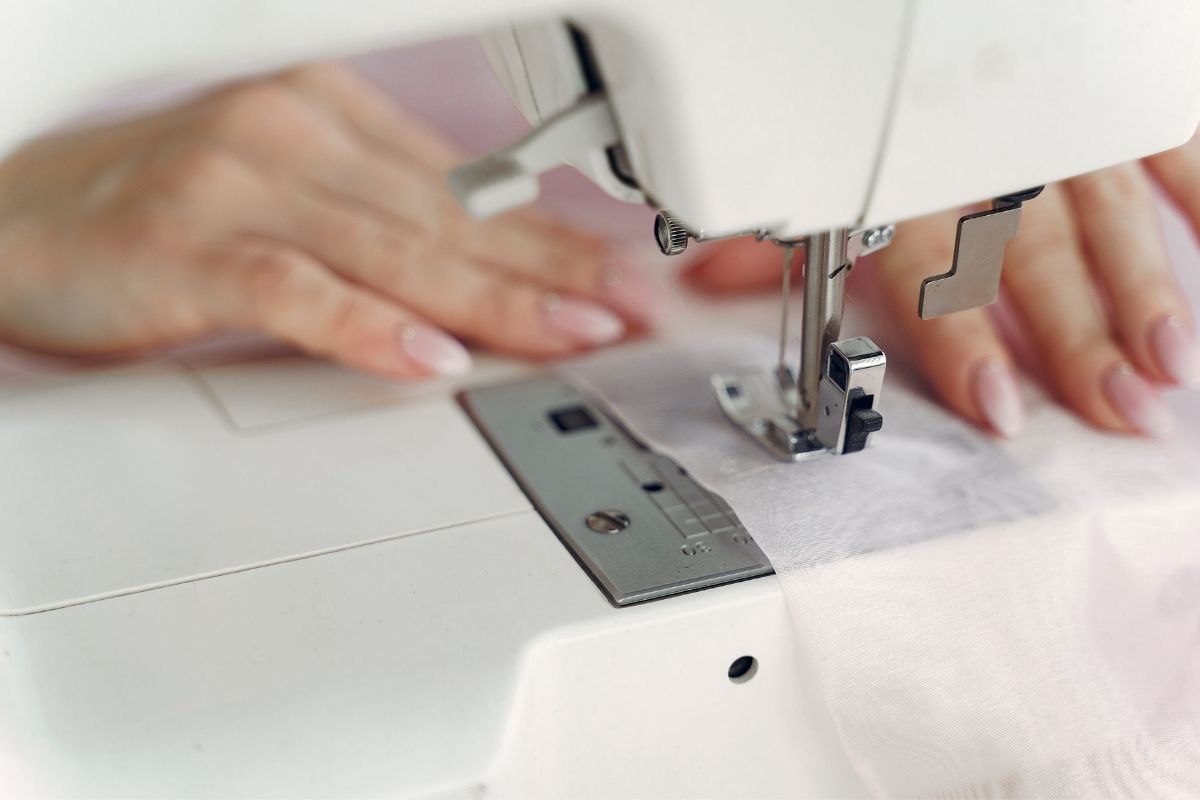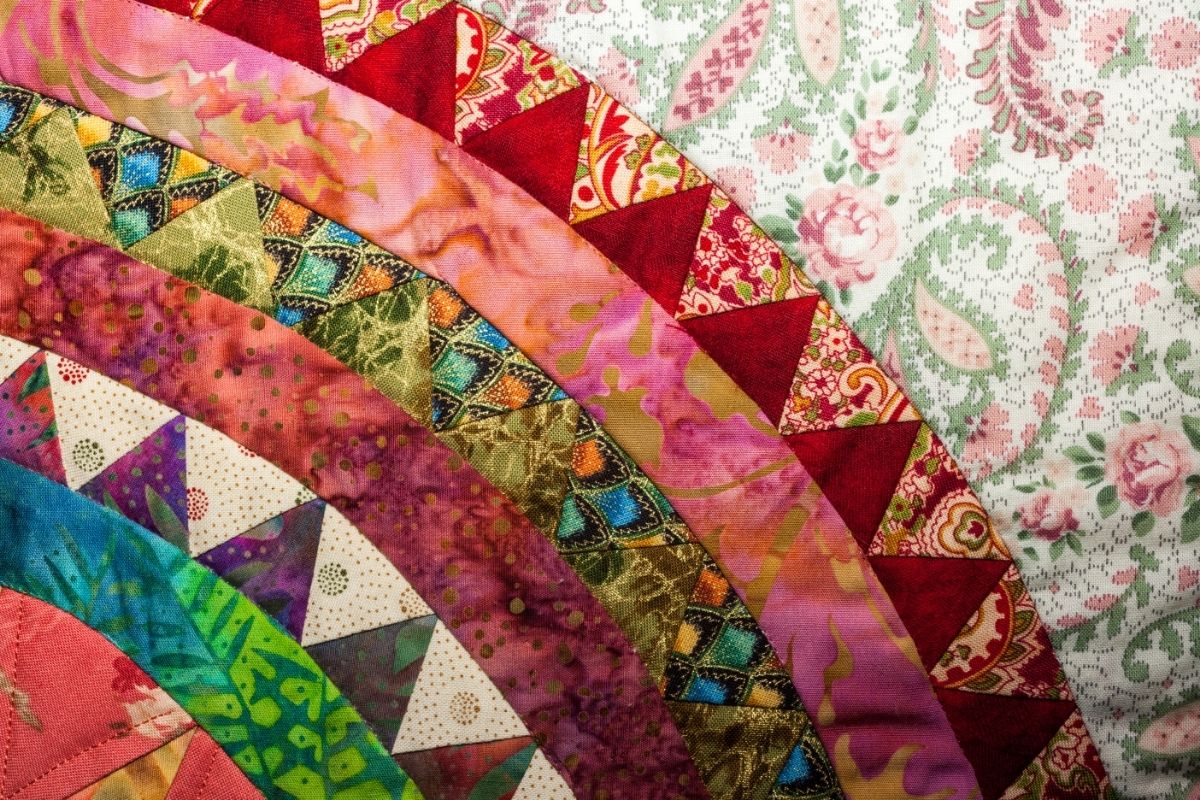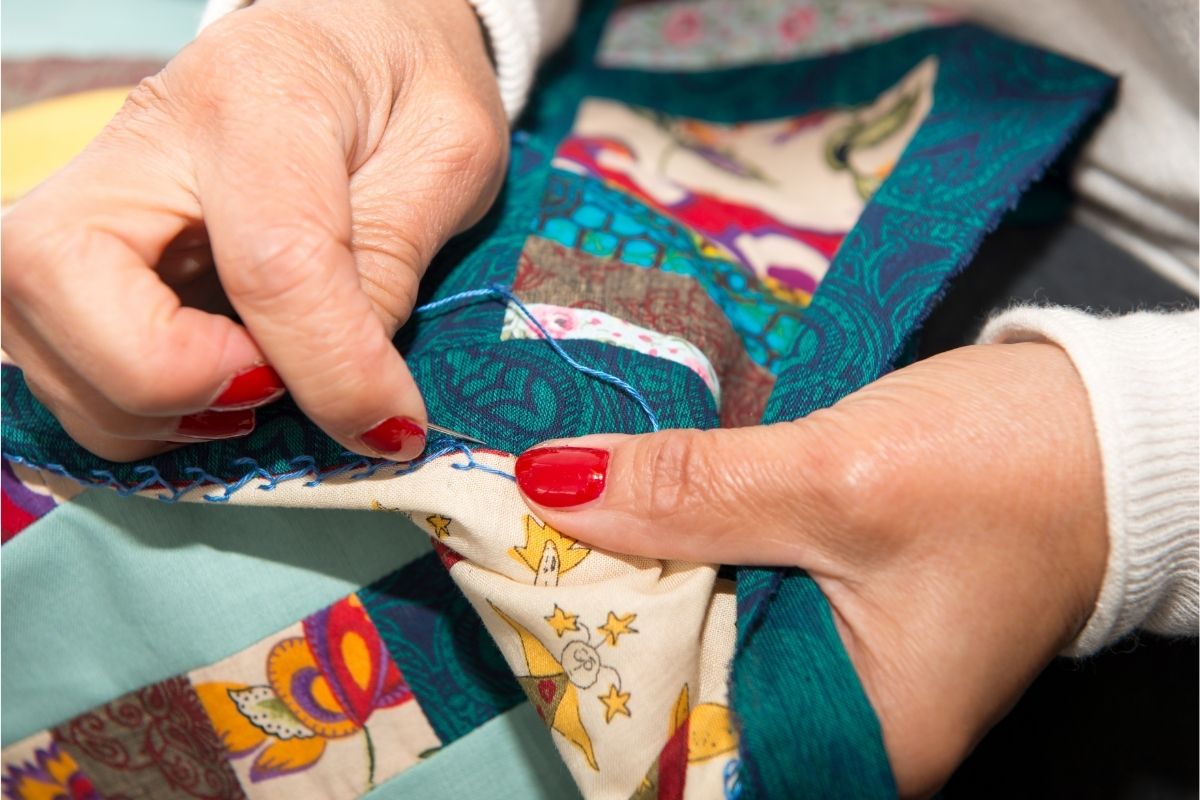Sewing has always been a hobby for me. I love creating beautiful things out of fabric. And since I started my blog, I’ve become even more passionate about learning new skills and sharing them with other sewers.
Thread is a vital part of every project. Whether you’re working on a dress or a pair of pants, choosing the right type of thread can make a big difference.
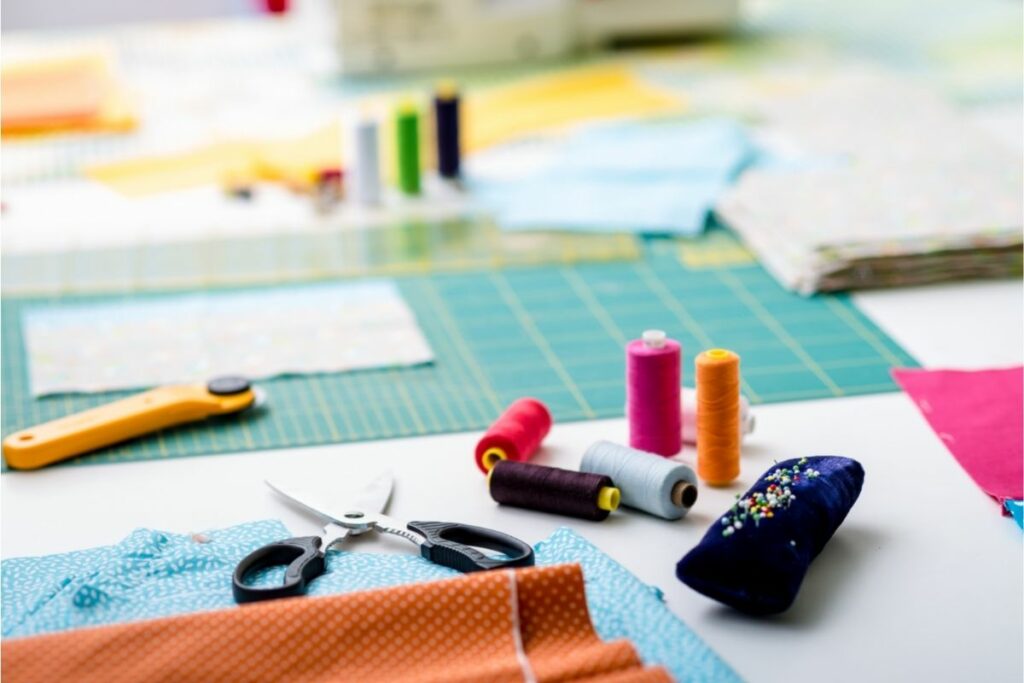
There are hundreds of types of threads available, ranging from cotton to silk to polyester.
There are several types of sewing thread, each with their own purpose. Some are suitable for specific projects, such as embroidery and appliquéing. Others are better suited for general sewing purposes.
In this article I’ll look at what makes up sewing thread, how it’s made, and which ones work best in different situations. I’ll also take a look at some of the most popular types of sewing thread.
What Is Sewing Thread?
Sewing thread is basically any material that you use to stitch together two pieces of cloth. It comes in many forms, but there are four main categories:
Cotton
This is probably the most common type of sewing thread. Cotton is strong, durable, easy to care for, and inexpensive. You might be familiar with cotton clothing, like t-shirts and jeans.
Cotton is used for all kinds of stitching, including hand embroidery, machine embroidery, quilting, and sewing.
Polyester
A synthetic fiber, polyester is often used for commercial garments because it holds its shape well and doesn’t shrink when washed.
It’s also very resistant to fading and wrinkles. Like cotton, polyester is great for home sewing projects.
Silk
One of the strongest natural fibers, silk is incredibly soft and luxurious. It’s commonly used for high-end garments, like dresses and suits. Silk is expensive and difficult to dye, so it’s usually reserved for special occasions.
Nylon
Nylon is a man made fiber that’s similar to rayon. It’s lightweight, flexible, and extremely durable. Because it stretches easily, nylon is perfect for knits. It’s also less likely to fade than other fabrics.
How Are Sewing Threads Made?
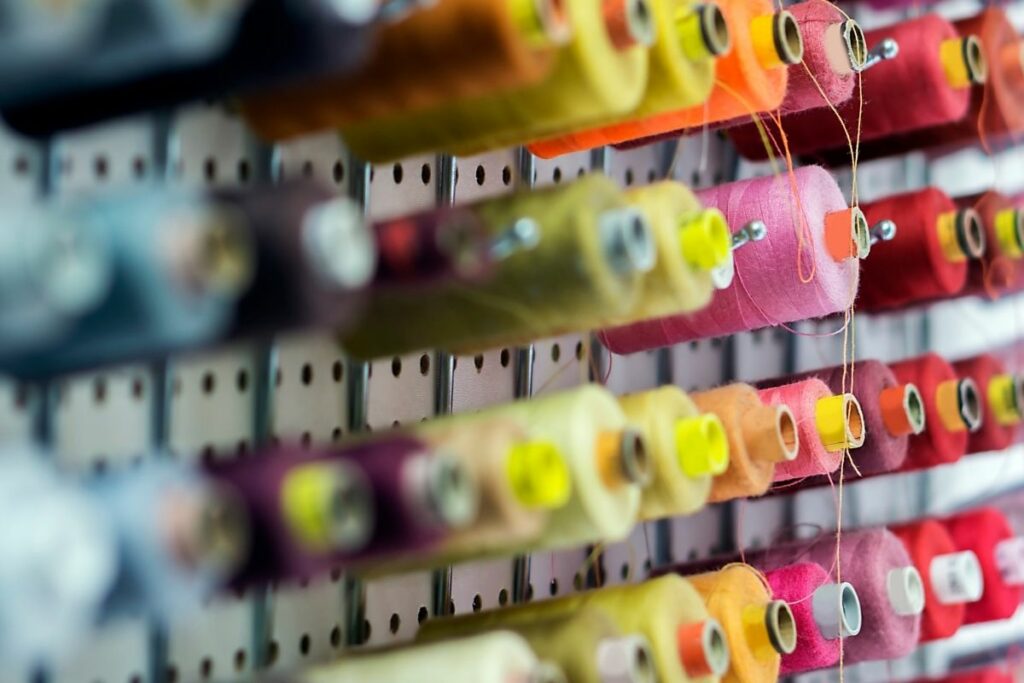
Sewing thread isn’t actually made by sewing together fabric scraps; instead, it’s manufactured using one of three methods:
Spinning
Spun yarn is created by spinning raw materials into long strands. These strands are then twisted into thicker cords called roving. Roving is then wound onto bobbins to create thread.
Knitting
Knitted fabrics are created by weaving yarn through loops of thread. When knitting, the stitches are formed by inserting the needle under the loop and pulling it through.
Weaving
In weaving, yarn is passed between two sets of parallel needles. As the yarn passes over the top needle, it catches the bottom needle, forming a knot.
Which Type Of Sewing Thread Should I Use For What Project?
It depends on your needs. If you want a sturdy, washable garment, choose a cotton thread. Cotton is the most versatile fabric, making it ideal for everything from skirts to shirts.
If you need a more delicate fabric, try silk. Silk is naturally smooth and shiny, making it an excellent choice for fine garments.
If you’re looking for something extra-special, consider using a blend of silk and cotton or even a combination of silk and polyester.
If you’re new to sewing, start out with cotton thread. Once you’ve mastered basic techniques, switch to a stronger, more durable thread such as polyester.
How Do I Go About Deciding On A Sewing Thread?
In general, in fabric stores, there is some guidance on which threads on offer can be used for different applications or purposes. Depending on the project you are undertaking, the type of thread you will choose will be different.
All-purpose thread is typically good to use for all kinds of projects, but may not be suitable for every single application. The weight of the thread is of particular importance.
This will be labeled at the end or the top and bottom of the spool (the thing the thread is bundled to). The larger the number, the thinner or finer the thread will be. This is important in terms of the eye of the needle size.
Typically, your lower weight threads (12wt-30wt) are better suited for activities like hand quilting. This thicker thread has a wax coating, which is handy for going through several layers of fabric of varying thickness.
If, on the other hand, you are quilting with a machine, you can use thinner thread such as all-purpose thread with a weight ranging between 40wt and 50wt.
When making clothes, thinner threads with weights of 40wt to 60wt is best to use, as this is less noticeable on the finished product. For embroidery, the most commonly used thread weight is 40wt.
This is because it is thick enough to see and make designs with, but also gives a delicate appearance to the finished work.
When doing hand appliquéing projects, it is good to use thinner threads-about 50wt to 60wt. While for machine appliquéing, it is recommended to use even thinner threads-with weights over 60wt.
When Should I Use Polyester Over Cotton?
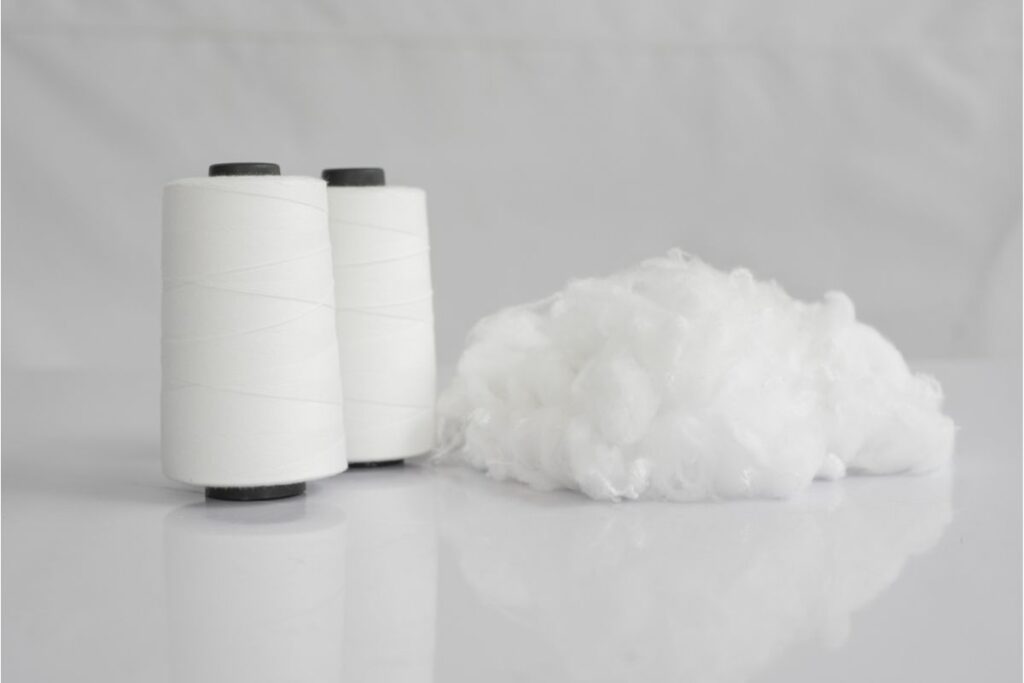
Again, depending on the project you are undertaking, polyester thread may be a more suitable choice for you to use while sewing or quilting.
If you prefer to use a higher speed on your machine, you may need to use cotton because it can withstand the heat generated by friction more than polyester can.
However, if you are making clothes, polyester can fare better because of its more flexible or malleable nature.
Polyester is also commonly used on embroidery machines, this is because it does not fray when pulled through the hoop.
Of course, as mentioned previously, there are other types of thread out there, namely silk, metallic thread or nylon.
These each can prove useful in various applications and can give the finished product a unique and stylish look.
What Is The Difference Between All-Purpose And Regular Sewing Thread?
The difference between regular sewing thread and all-purpose thread is that all-purpose thread is made up of multiple strands of thread twisted together to form one long strand. It is usually sold in smaller quantities than regular sewing thread.
Regular sewing thread is made up of only one single strand of thread. It is often sold in large quantities.
When choosing regular sewing thread, it is important to consider how much you want to spend. You should always buy the amount you think you will need.
Regular sewing thread is a great option for beginners who are just starting out with their sewing hobby. They are easy to find and cheap.
All-purpose thread is a bit different from regular sewing thread. There are two types of all-purpose thread: multifilament and monofilament.
Multifilament thread consists of many individual filaments twisted together into one long strand. Monofilament thread consists of only one single filament. Both have their own advantages and disadvantages.
Multifilament thread is generally cheaper than monofilament thread. This makes it a popular choice among beginner sewers.
Monofilament thread is very durable and strong. It is ideal for heavy-duty sewing. Multifilament thread is softer and more pliable than monofilament. This makes it easier to cut and sew with.
The Best Sewing Thread On The Market
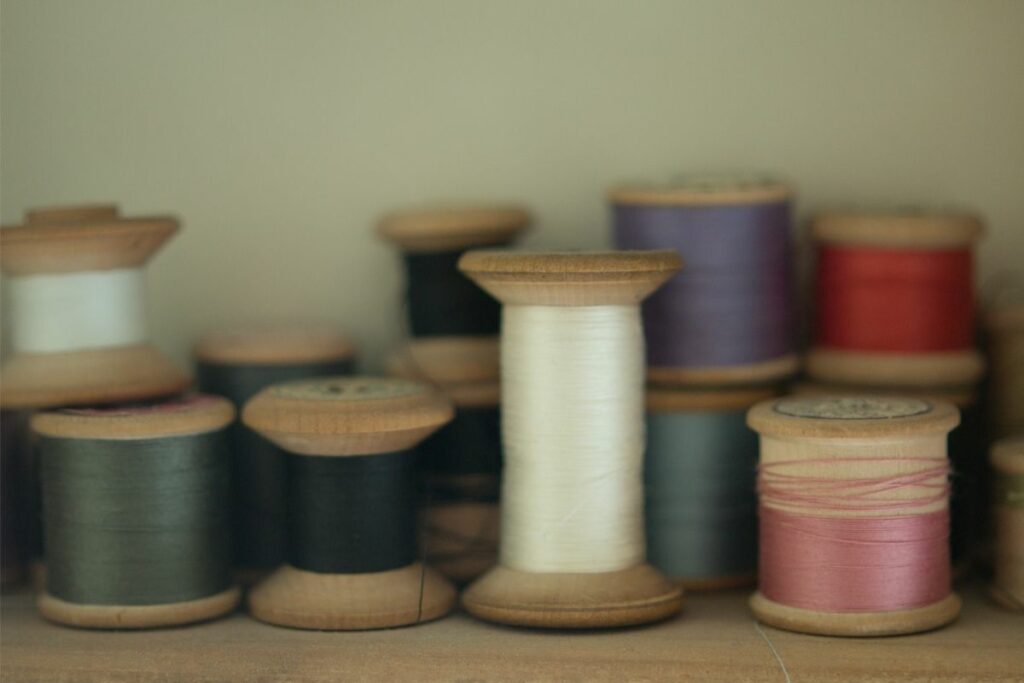
Now that we know what type of thread to choose, let us take a closer look at some of the top sewing thread brands available on the market today.
Cotton
100% cotton thread is widely considered to be the best sewing thread for most purposes. It comes in a variety of colors and thicknesses. It is available in both regular and all-purpose sewing thread.
Examples of this type of thread include Gutermann All Purpose Thread Set, Aurifil 50wt Thread, and Connecting Threads 100% Cotton Thread
Polyester
Polyester threads are similar to cotton, but they are slightly less expensive. They come in a wide range of colors and thicknesses, and are available in both regular and multi-filament varieties.
Examples of this type of thread on the market include Singer All-Purpose Thread Coats and Clark Surelock Overlock Thread, as well as New brothread Embroidery Thread
Silk
Silk threads are extremely soft and luxurious. They are normally found in fine fabrics such as lingerie and clothing. Silk threads are available in both regular sewing thread and all-purpose thread.
Metallic
Metallic threads are made from aluminum, copper, brass and silver. They are highly reflective and make an excellent finishing touch to your projects. Metal threads come in a variety of colors.
An example of ones on the market can be found by the brand New brothread who make their own Metallic Embroidery Threads.
Nylon
Nylon threads are known for being strong, durable, and resistant to fraying. They are also hypoallergenic, which means they don’t cause allergic reactions.
Nylon threads come in a variety of colors and thicknesses.
Wool
Wool threads are warm and comfortable. Wool threads are available in both normal and all-purpose sewing thread varieties.
Leather
Leather threads are used to stitch leather products like bags, shoes, belts, and wallets. Leather threads come in a variety of sizes and colors.
Other Materials
There are other materials that can be used instead of sewing machine thread. These include embroidery floss, nylon cord, satin ribbon, silk ribbon, pearl cotton and rayon.
All these materials have their pros and cons.
The Bottom Line
There are many different types of sewing threads available, each suited for specific purposes.
In general, though, it is best to find a multipurpose or all-purpose thread that can be used for many applications- so you do not have to buy thread for every single sewing or quilting project.
However, play around and see which thread works best for you and your project and what gives the desired look at the end.
Frequently Asked Questions
Which Is Better, Cotton Or Polyester?
If you use your sewing machine at high speed, cotton will withstand the machine’s friction and heat better than polyester.
What Is The Weight Of Thread?
It will look like “40wt” or “60 wt”, for example.
How Much Is A Machine Appliquéing?
Appliquéing: Ranges from 50wt-60wt for hand appliquéing and 60 wt-80 wt for machine appliquéing.
What Is The Most Durable Type Of Thread?
Nylon is the most durable type of thread. This is because it is able to withstand a lot of friction and is able to penetrate through tougher fabrics like leather or vinyl and other fabric used in upholstery.
- How to Cut Quilt Pieces - April 25, 2022
- Your Simple Guide To Quilt Sizes - April 25, 2022
- How To Join A Quilt With Diagonal Seam - April 25, 2022

